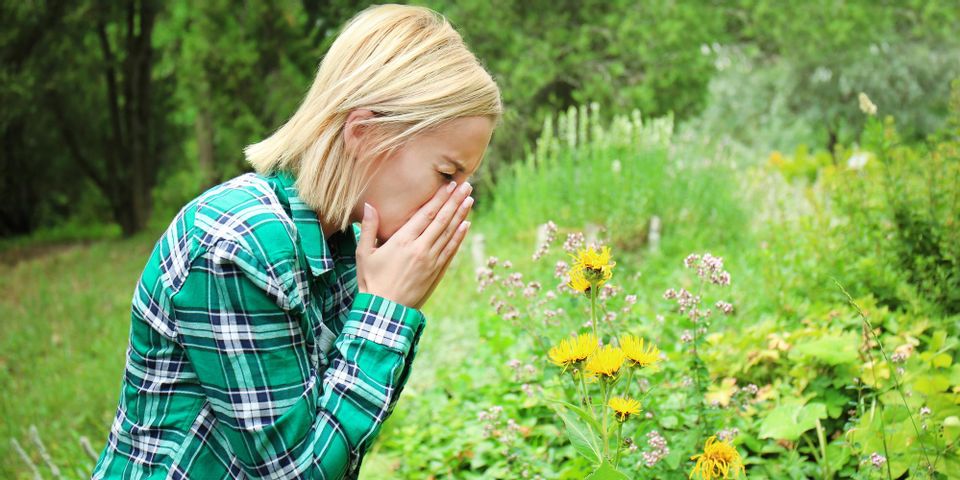What Is Pollen Count & How Does It Affect You?

With spring in full swing, you’ve likely heard the phrase “pollen count” thrown out in the daily weather forecast. This refers to the amount of weed, grass, and tree pollen in the air on a given day. But how is this number calculated and what are the effects? Here are a few facts to consider before discussing prevention and treatment options with your allergist.
What You Need to Know About Pollen Count
How Counts Are Calculated
Pollen is highest during spring when flowers, plants, grass, and trees are in bloom after winter dormancy. The count is calculated by placing counter devices on top of buildings. These devices accumulate pollen samples through means such as glass slides coated in petroleum or clear rods coated in silicone grease. The samples are collected over a 24-hour period. Then, pollen identification experts count how many particles from different sources are present, such as those from trees and weeds, to determine if the count is low, medium, or high for the day.
The Weather Channel® provides pollen forecasts as well as the daily average so you know what to expect for the days ahead. Factors such as time of day, changing weather, and local flora and fauna impact pollen accumulation. For instance, the pollen count is highest between 5 a.m. and 10 a.m., as well as warm and dry days. The pollen count is typically lower after a heavy rainfall.
How Pollen Count Can Affect You
 The higher the pollen count, the more susceptible you are to allergy flare-up symptoms such as sneezing, watery eyes, and nose and throat irritation. Depending on how severe your allergies, you may need seasonal treatment from a qualified allergist to reduce if not eliminate your symptoms. Your allergist will also suggest closing your doors and windows, avoiding outdoor activities when the pollen count is highest, and wearing an allergy mask if you need to go outside. Over-the-counter and prescription formulas are available depending on your needs, including nasal sprays and antihistamines. Flushing the sinuses with an over the counter nasal saline can also prove helpful.
The higher the pollen count, the more susceptible you are to allergy flare-up symptoms such as sneezing, watery eyes, and nose and throat irritation. Depending on how severe your allergies, you may need seasonal treatment from a qualified allergist to reduce if not eliminate your symptoms. Your allergist will also suggest closing your doors and windows, avoiding outdoor activities when the pollen count is highest, and wearing an allergy mask if you need to go outside. Over-the-counter and prescription formulas are available depending on your needs, including nasal sprays and antihistamines. Flushing the sinuses with an over the counter nasal saline can also prove helpful.
If high pollen counts are affecting you or a family member, make an appointment with Allergy & Asthma Clinic of Macon. Allergist Dr. David T. Plaxico provides patients throughout Bibb County, GA, with tests and treatments that make the outdoors enjoyable again. Call the fragrance-free facility today at (478) 743-9376 to schedule your appointment or learn more about the Middle Georgia pollen count online. Like the allergist on Facebook for regular updates.
About the Business
Have a question? Ask the experts!
Send your question

